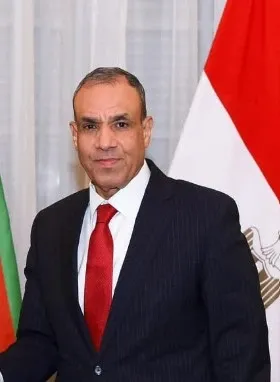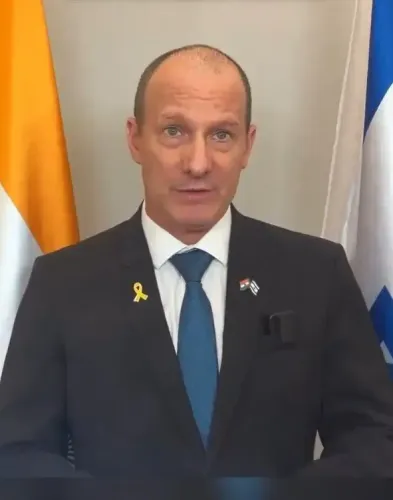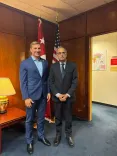What Did Egypt's FM Discuss Regarding the Iranian Nuclear Issue?

Synopsis
Key Takeaways
- Egypt's diplomacy plays a crucial role in regional stability.
- A swift return to negotiations on the Iranian nuclear issue is essential.
- The IAEA is vital for monitoring nuclear compliance.
- Ceasefire agreements are necessary for peace.
- Diplomatic solutions should be prioritized over military action.
Cairo, July 1 (NationPress) - Egyptian Foreign Minister Badr Abdelatty engaged in phone discussions with Iranian Foreign Minister, Seyed Abbas Araghchi, and Rafael Grossi, the chief of the International Atomic Energy Agency (IAEA), focusing on addressing the Iranian nuclear issue.
During his conversation with Araghchi, Abdelatty highlighted the significance of promptly resuming negotiations regarding the Iranian nuclear file, perceiving it as the most effective route to foster trust and ease regional tensions, as reported by Xinhua news agency.
Abdelatty further stressed the necessity of maintaining regional security and stability through diplomatic and negotiated resolutions, according to a statement from the Egyptian Foreign Ministry.
In his dialogue with Grossi, Abdelatty conveyed Egypt's unwavering support for the crucial role of the IAEA in the verification processes under the Treaty on the Non-Proliferation of Nuclear Weapons, as stated by the Egyptian Foreign Ministry.
The leading Egyptian diplomat expressed that Egypt places significant emphasis on upholding the credibility of the treaty, viewing it as a fundamental element of the global non-proliferation architecture, and anticipates ongoing coordination and collaboration with the IAEA.
He also pointed out the importance of solidifying the ceasefire between Iran and Israel and prioritizing diplomatic avenues in resolving the Iranian nuclear issue.
For his part, Grossi praised Egypt's contributions to promoting regional peace and stability.
Israel conducted a series of substantial airstrikes on June 13, targeting nuclear and military installations throughout Iran, resulting in the deaths of senior commanders, nuclear scientists, and civilians while injuring numerous others.
In response, Iran executed multiple waves of missile and drone strikes on Israeli territories, leading to casualties and destruction.
A ceasefire was established between the two nations on June 24, bringing an end to 12 days of conflict.









